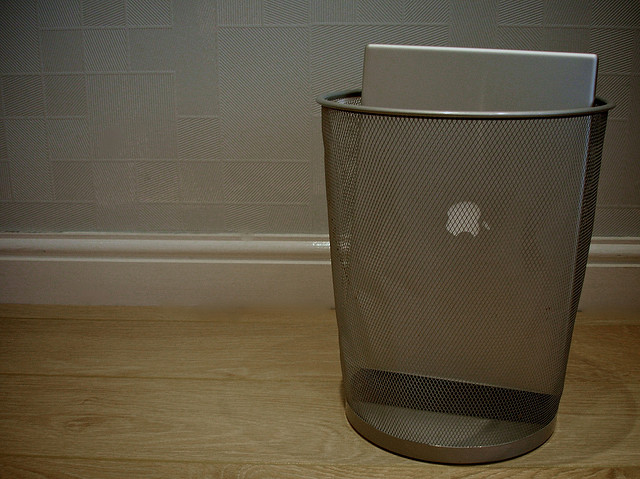Like this article? rabble is reader-supported journalism. Chip in to keep stories like these coming.
Man, judging from the tech news last week, nobody likes laptops anymore. Microsoft introduced one that you can rip the head off of, Apple is about to launch a powerhouse tablet that works like one, and Google is making an Android tablet with a detachable keyboard that goes head to head with its inexpensive Chromebooks. And, I’m writing this on an Apple iPad with a wireless Microsoft keyboard.
It’s getting harder to imagine a good future for the poor laptop. The new Microsoft products and latest changes to the Apple mobile operating system, iOS 9, in particular are good indicators of trouble ahead.
Last week Microsoft introduced a new tablet, the Surface Pro 4 and, as a surprise “one more thing,” the Surface Book, which is really a two-in-one tablet/laptop that sports the industrial design we normally expect from Apple.
It’s not a real shocker that Microsoft got into the laptop game late and somewhat laterally.
The Surface Book looks to be a beautiful, high-end device and a far cry from the generally dreadful and low-margin junk Dell, Acer and others pump out. Which is a good thing since those manufacturers can’t offer any evidence that Microsoft finally getting into the laptop space will compete with them. It would sort of be like the producers of College Pranks II getting pissed that Netflix made House of Cards.
So, it’s not as if Microsoft was offering the Surface Book as a reference design for other manufacturers to imitate. I think Redmond just got sick of Windows users who care about industrial design dual-booting their Macbooks into Windows 10 so they’d have a fast, beautiful computer that didn’t look like it was injection-moulded by stump-fisted trolls in a Soviet gulag. And, up until the last few months, Microsoft really didn’t have to make laptops; everyone else was doing it for them. But, with laptop sales tanking, Microsoft needed to do something.
The fact that the something plays the roles of a tablet and a laptop is interesting. It highlights the difference between Microsoft and Apple. Microsoft can produce a twofer device because its operating system is meant to serve two masters: laptop fans and tablet enthusiasts. Meanwhile, Apple has an OS for desktops and laptops, OSX, and one for smartphones and tablets, iOS.
So, that explains why Apple’s shot across the laptop bow, the iPad Pro, isn’t a laptop at all. It’s a tablet with a full-sized keyboard magnetically and seamlessly attached as a cover. So, more like the groundbreaking Surface Tablet line than the Surface Book.
The iPad Pro, due out early next month, has serious horsepower under the hood. It also runs iOS 9, which allows it, and the already available iPad Air 2, to run apps in split-screen mode, so you can easily write a report and do research in a browser without having to switch screens.
From discussion boards I’ve been reading, a lot of users are starting to wonder how many times they actually do anything more than two things at a time on a laptop. Maybe, they are thinking, a big, bright, split screen, a fast CPU and a real keyboard are all I need to get my work done. For them, an iPad Pro is a serious alternative to a Macbook Air.
Meanwhile, in the Windows camp, for many users a Surface Pro might be a viable alternative to a laptop, even to the Surface Book, which has more CPU and GPU horsepower than anyone outside a professional videographer would need. And, for folks with even more modest computing needs, Google’s new Pixel C Tablet with its new keyboard might do the trick.
Whatever people pick, it seems, all the key players are betting the bog standard laptop will look less and less appealing. It used to be the case folks thought laptops would become more and more like tablets, with touch screens and longer battery life. Now, though, Microsoft, Apple and Google seem to be betting on the opposite future: tablets will be the new laptops. And, like I said, I’m writing this on a tablet. I’m really wondering if the iPad Pro might not just be my next daily driver.
Listen to an audio version of this column, read by the author, here.
Wayne MacPhail has been a print and online journalist for 25 years, and is a long-time writer for rabble.ca on technology and the Internet.
Photo: Nathan Makan/flickr
Like this article? rabble is reader-supported journalism. Chip in to keep stories like these coming.



